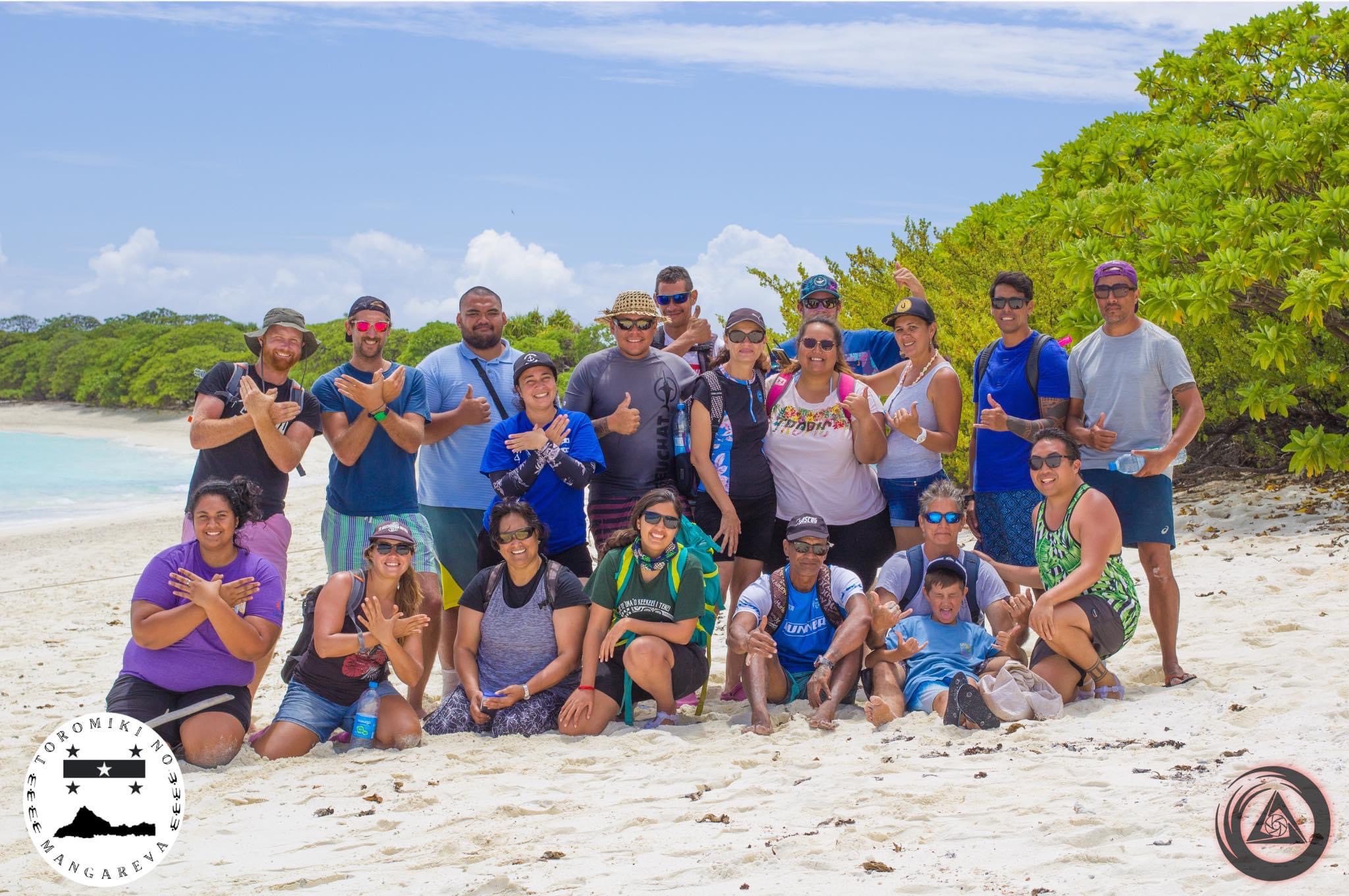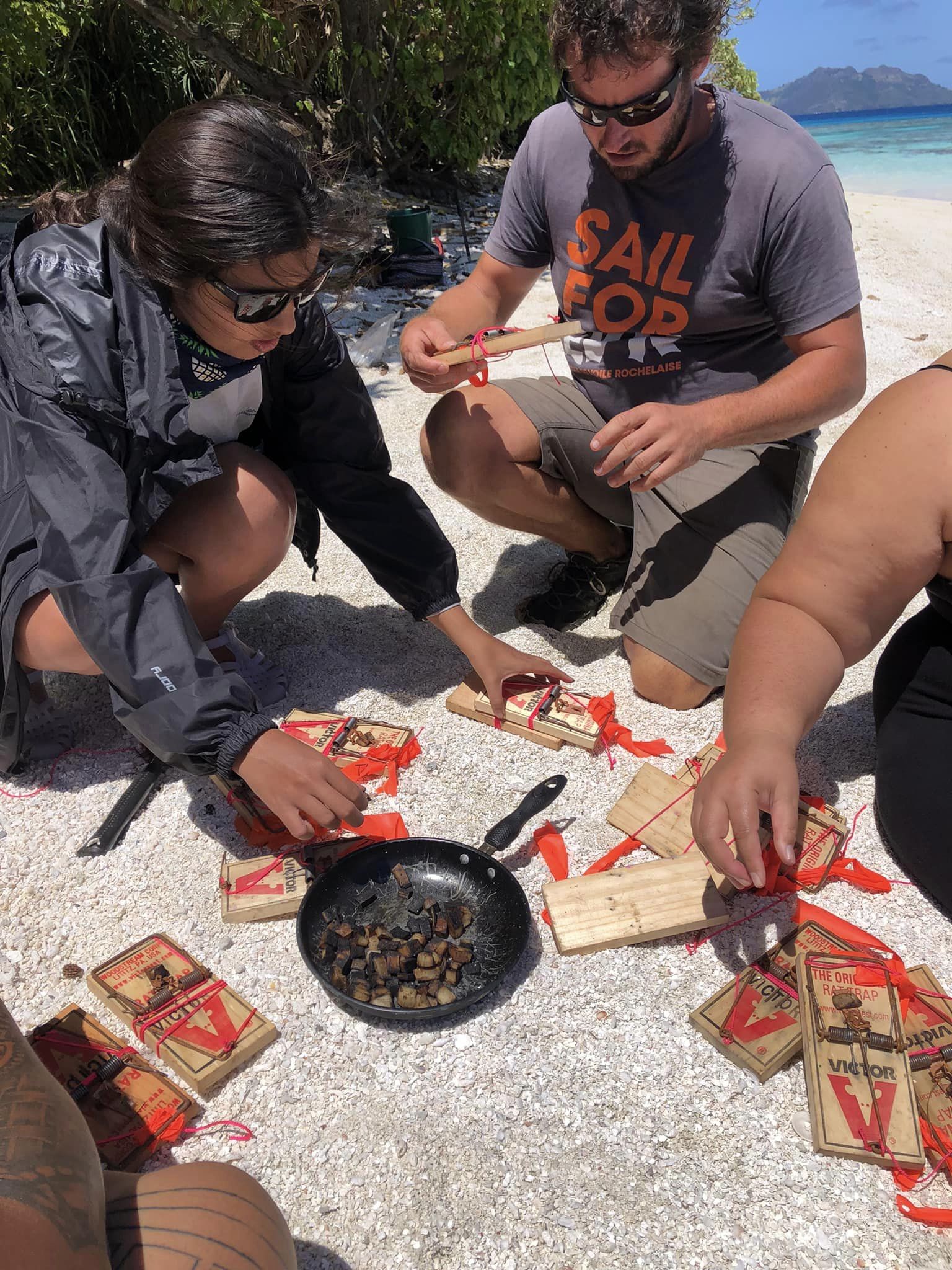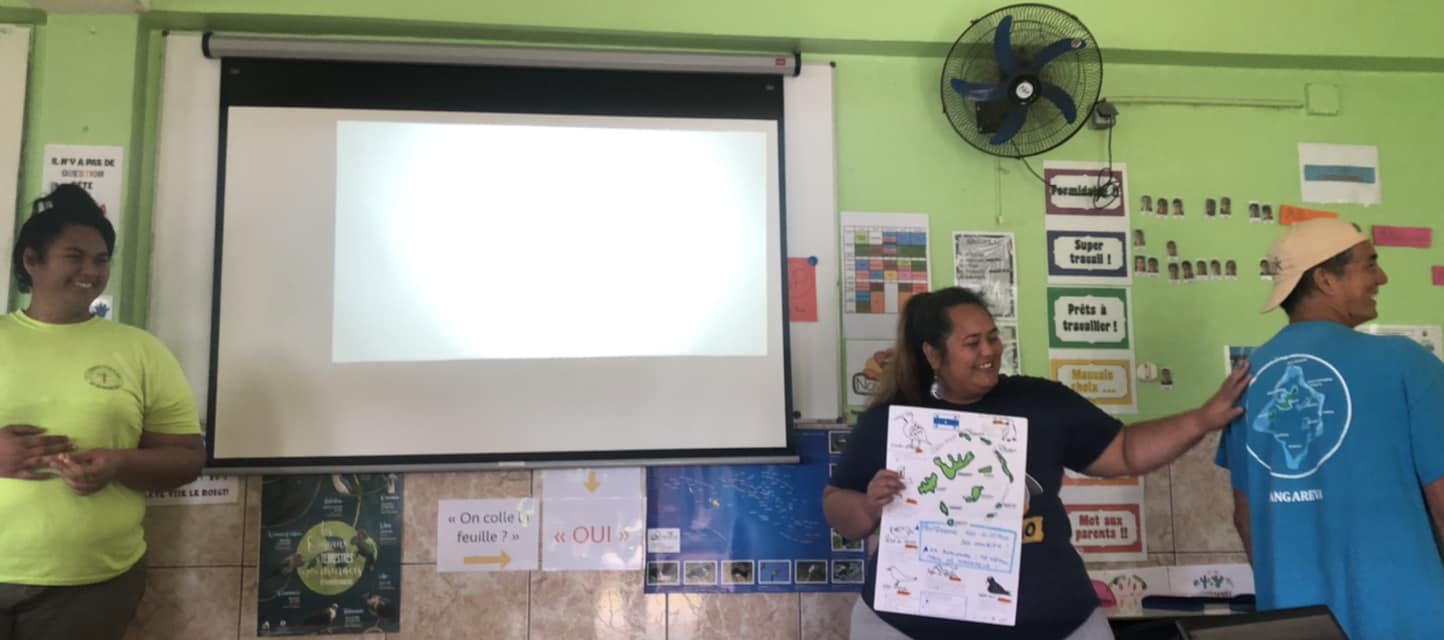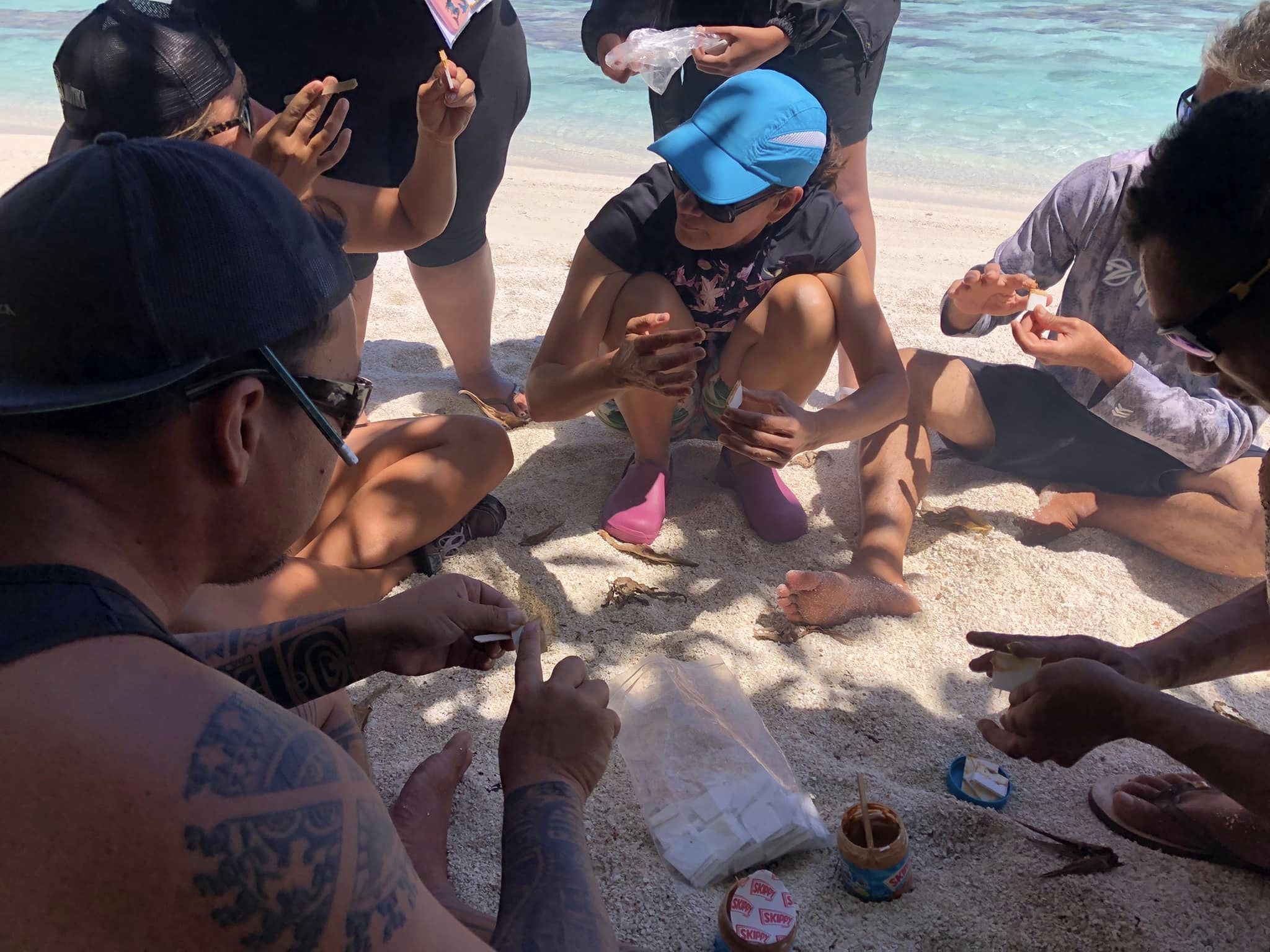




There were two training sessions of the local NGO Toromiki no Mangareva conducted by SOP Manu. The NGO was recently created to protect the fauna and flora of Mangareva and the surrounding uninhabited islets and to involve children of the island in the protection of the environment. The two training sessions with Toromiki no Mangareva were an opportunity to spread knowledge and talk about the Kamaka restoration project. Many members are primary and secondary school teachers from Mangareva, who were able to deliver key messages to children of the island about seabirds, their threats and biosecurity.
Several members of the NGO are active members of the Gambier community (employees of the town hall, the Air Tahiti office, school teachers, and firefighters), and therefore have a lot of influence on the local population. Their involvement through training will help protect Kamaka in the future – as they were asked to communicate about this project and biosecurity measures to the local community.
- Involve the local community in relevant training.
- Communicate and raise awareness effectively among the locals.
- The theoretical interventions allowed the members to acquire knowledge of the different means of communication of biosecurity and the importance of birds to the community.
- The development of Mock-ups for biosecurity, Information posters and information brochures signs in groups was very useful and made local people participate in their own way in the conservation project.
- The visits on the field had allowed members to gain field experience in bird recognition and learn techniques for monitoring invasive species (via the use of rat snap-traps or chewing cards).
- Barry Mamatui also participated in the training (essential local team member who participated in the Kamaka eradication project and has been trained by SOP Manu since 2015), which allowed Toromiki no Mangareva members to recognize the importance of having local people trained for this type of work. His presence was important as he shared his experience on the field and his knowledge of the sites and seabirds.